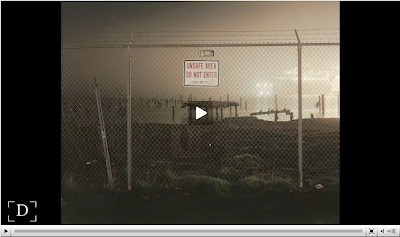Many of you know I have a long history of editing and composing segments for various purposes but I hold a deep respect for Daylight Magazine and it's great pleasure to create media for them. For the last week or so I have been working with Daylight magazine, and indirectly with Will Steacy, to put together a media segment. Will is having a show at the Michael Mazzeo Gallery in New York City and the segment I recently edited is now live on the Daylight Magazine Multimedia podcast page. It's also going to be shown at the opening reception for the Michael Mazzeo Gallery. I find Will's work to be both powerful and meaningful. His photographs have an intensity that resonates though their story. His images also bring to light a national discussion about how our urban environments are evolving.
From the Daylight page:
In "Down These Mean Streets" Will Steacy wanders through battered urban areas with a wrench in his back pocket. Barney Kulok and Paul Graham come to mind when looking through these images of abandoned buildings, burned-out cars, neon signs and local residents. The city glows, strangely beautiful but vaguely threatening, as a picture of urbanity and its attendant vices - it is not a forgiving portrait. This podcast produced in conjunction with the Michael Mazzeo Gallery for Steacy's show on view June 10 - July 23rd 2010. Read an exclusive, in-depth piece about "Down These Mean Streets" at Conscientious Extended.
And you can also see the segment by clicking on the image below:
That's it for now. We'll see what makes it up later this week. Make sure you hit some of those links or watch the segment and if you're in NYC you should go to the show because I imagine that the images are pretty amazing in person. If given the opportunity, I'd check it out. Hopefully I'll get that chance.
Also, on a side note, I'm credited in the segment as "Multimedia Producer" and by movie credit standards I'm not acting as a producer. Yes, I am "producing it" and "actually making it" (sequencing it, adjusting everything that is associated with editing) but by movie, television standards I'm the producer but rather the editor. It's an odd choice of words here but I am not the director (also in reference to it's traditional definition, and also not used in the credits, again, odd I know...) thus, I'm not in charge about how to word the credits. But I did edit this and I just wanted to note that. Also, I wanted to note that Dave Runyan was the audio engineer on the interview. I was given really rough interview audio and the fist thing I thought was, "this is unusable and needs to be worked over..." and without question thought of Dave. He's top notch when it comes to audio so I went to him.
Cheers.
More to come.
